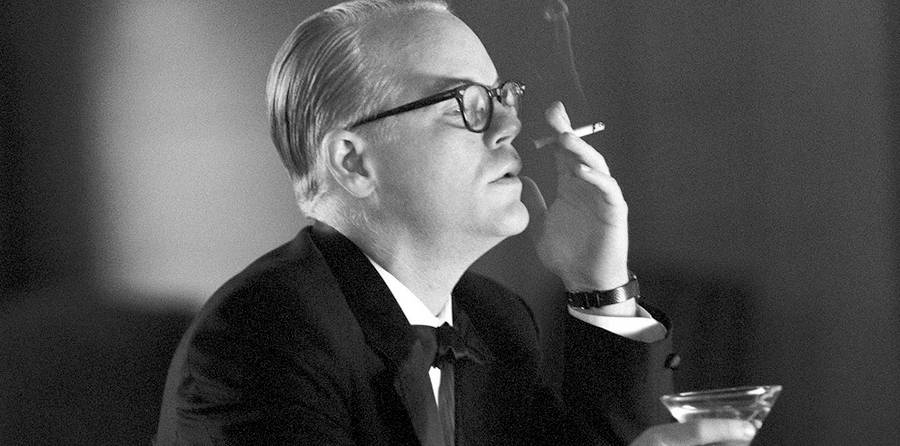Philip, we hardly knew ya

He was one of us. An actor. “A member of the tribe” as my friend Tracey would say. And when a member of the tribe leaves us it’s important to mark that moment with a pause. With a breath. With some words to try to make sense of it all.
For those of you who have been through our workshops you may remember that one of the first questions we ask is: Who is your favorite actor or actress and why?
Time and again the answer comes back: Philip Seymour Hoffman.
I loved him in Capote.
Isn’t that the one he won the Academy Award for Best Actor?
Yeah, but I really liked him in Moneyball.
My kid thinks he was great in The Hunger Games.
He’s just so believable. Anything he does, I just believe he is the character he’s playing.
And so it is with great sadness and shock we collectively mourn his death at age 46 from an overdose this week.
He was one of us. An actor. “A member of the tribe” as my friend Tracey would say. And when a member of the tribe leaves us it’s important to mark that moment with a pause. With a breath. With some words to try to make sense of it all.
He possessed so many of the skills we teach in our workshops to Leaders.
- Emotional expression
- Connection to the audience
- Playing a variety of roles
- Creativity
- Vocal Range
- Authenticity
And yet…
It occurs to me today that if we at The Ariel Group are going to use the skills of the actor to teach business people about leadership it’s incumbent upon us to also have a point of view about the pitfalls of a life in the spotlight.
Being in the public eye can have a price, both for celebrity actors and for leaders. Because let’s face it, leaders ARE local celebrities. Everyone knows his or her name. Everyone pays attention to what mood he or she is in. The pressure to perform is enormous and people will make accommodations for the preferences and tastes of ‘the celeb’ that they wouldn’t necessarily make otherwise. I taught a workshop once where I was warned:
DO NOT open the curtains. Our CEO doesn’t like too much light.
Apparently he believed that a darkened room was more conducive to problem solving. In the meantime, the overhead lights were burnt out, so I trained in the dark.
That is why Self-Knowing is the foundation of our PRESence Model (Present, Reaching Out, Expressive, Self-Knowing). It is the skill set upon which all of the other skills stand.
You can be present and build great relationships and be incredibly expressive, but if you don’t understand and come to terms with your own demons, if you are not able to handle the stress that a life of high expectations and public scrutiny brings, you may turn to self-destructive behaviors for relief from the pressure.
Of all the techniques we teach people to help them increase their presence perhaps the most critical is a practice of self-reflection. Pausing and taking stock.
It is in these moments of self-reflection; writing in a journal, talking to a trusted friend, working with a coach, mentally reviewing your day on the drive home from the office, that leaders start to deepen their self-knowing. And with Self-Knowing comes confidence. When you see a leader who is comfortable in their own skin what you are seeing is a leader who, at their core, knows who they are and what they stand for.
I don’t know if Philip Seymour Hoffman really knew who he was. Addiction steals so much. But the titles of the films he left us with shed light on some of what he wanted us to know about the human condition. Let this list be a eulogy to his best self and let him rest in peace.
Happiness
Doubt
The Invention of Lying
A Most Wanted Man
The Savages
The Master
God’s Pocket
Before The Devil Knows Your Dead
Mission Impossible
The Hunger Games
Almost Famous
and poignantly his last film: Happyish.
